Touch (2024): first love never dies | el primer amor nunca muere
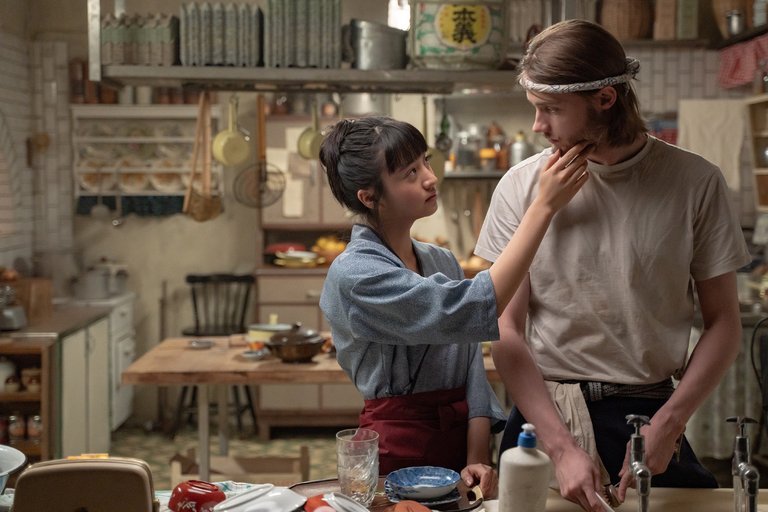
Una historia hermosa, conmovedora y romántica
In Latin America, there's a tendency to imagine the inhabitants of Nordic countries as cold people. We believe that they are educated, very intelligent, cultured, members of an advanced and functional society, knowledgeable in classical music, but deep down, most Latin Americans (or most of those I have met) think that Danes, Swedes, Norwegians or Icelanders are people incapable of grand gestures of love or noticeable displays of affection. And precisely for those who think this way, I bring you this film today to see if they can see how wrong they are.
En latinoamérica se tiene la tendencia a imaginar a los habitantes de los países nórdicos como personas frías. Creemos que son educados, muy inteligentes, cultos, miembros de una sociedad avanzada y funcional, entendidos en música clásica, pero en el fondo, la mayoría de los latinos (o la mayoría de los que he conocido) piensa que los daneses, suecos, noruegos o islandeses son personas incapaces de grandes gestos de amor o notorias demostraciones de afecto. Y precisamente para quienes piensan así, traigo hoy esta película a ver si logran ver lo equivocados que están.
Snerting (Touch) is an Icelandic film directed by Baltasar Kormákur and co-written by him with Ólafur Jóhann Ólafsson. It tells the story of Kristófer, an elderly man who suddenly travels to London in the days before the CoVid-19 pandemic in search of his first love, a woman he has not seen in more than fifty years and who disappeared one day without a trace. Kristófer has just undergone some medical tests, he feels worn out, he believes that his life may end soon and that motivates him to undertake this impossible search. At the end of the sixties, Kristófer was studying in London with other friends. After the Prague Spring and other well-known historical events, there was a kind of revolutionary consciousness among European and American youth who listened to John Lennon and Yoko Ono's Give Peace a Chance on the radio the same year that the legendary Woodstock concert was held and the senselessness of the Vietnam War was denounced. He belongs to that generation that didn't want to be stepped on or abused by the authorities or institutions and to demonstrate his discontent with the way decisions were made at his university he decided to drop out. After confessing to having lost interest in academia, his friends, joking with him and mocking a little about his revolutionary side (which they associate with the left, communism, Marx and the proletariat, etc.) point out to him an sign that says that a Japanese restaurant is looking for a dishwasher and they urge him to go and ask about the vacancy, which - to his friends' surprise - the young man does.
Snerting (Touch) es una película islandesa dirigida por Baltasar Kormákur y co escrita por él junto a Ólafur Jóhann Ólafsson en la que se cuenta la historia de Kristófer, un hombre de edad avanzada que repentinamente viaja a Londres en los días previos a la pandemia de CoVid-19 en busca de su primer amor, una mujer a quien no ha visto en más de cincuenta años y que desapareció un día sin dejar rastro. Kristófer se acaba de someter a unos exámenes médicos, se siente desgastado, cree que su vida puede acabar pronto y eso lo motiva a emprender esa búsqueda imposible. Al final de los años sesenta, Kristófer se encontraba estudiando en Londres junto a otros amigos. Después de la Primavera de Praga y otros hechos históricos conocidos por todos, hubo una especie de consciencia revolucionaria en la juventud europea y norteamericana que escuchaba en la radio Give Peace a Chance de John Lennon y Yoko Ono el mismo año que se celebró el mítico concierto de Woodstock y se denunció el sinsentido de la guerra de Vietnam. Pertenece a esa generación que no quiso dejarse pisar o abusar de las autoridades ni de las instituciones y para demostrar su descontento con la forma en que se tomaban las decisiones en su universidad decidió abandonar los estudios. Tras confesar haber perdido el interés en la academia, sus amigos, bromeando con él y mofándose un poco de su lado revolucionario (que asocian con la izquierda, el comunismo, Marx y el proletariado, etc) le señalan un aviso que dice que un restaurant japonés busca un empleado para lavar los platos y lo instan entonces a que acuda a preguntar por la vacante, cosa que - para sorpresa de sus amigos - el joven hace.
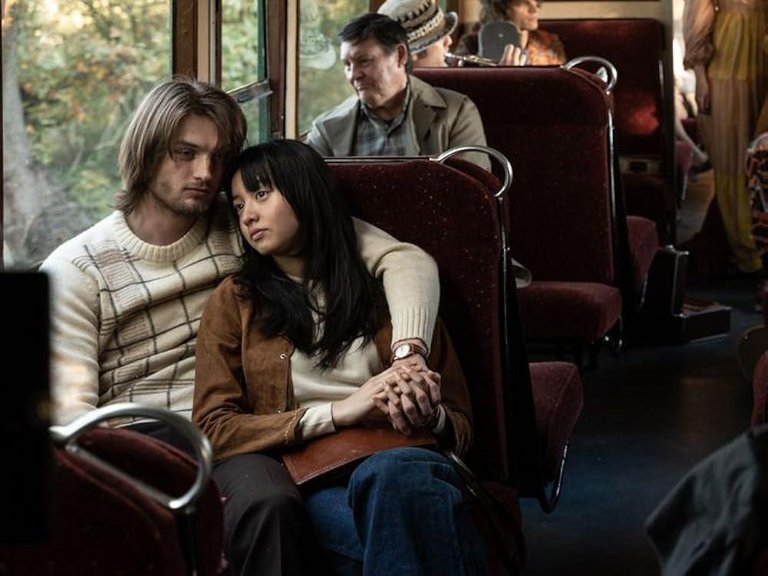
In that first meeting, Kirstófer speaks with Takahashi, the chef and owner of the place, who urges him to return the next day for a more detailed interview, but just as the young Icelander is leaving, Miko, Takahashi's young and beautiful daughter, enters the restaurant, and from that moment Kirstófer knows that he will return the next day and that theres no way he will lose that job. He needs to see her again.
En ese primer encuentro Kirstófer habla con Takahashi, el chef y dueño del lugar, quien lo insta a volver al día siguiente para una entrevista más detallada, pero justo cuando el joven islandés se está retirando, ingresa en el restaurant Miko, la joven y hermosa hija de Takahashi, y desde ese instante Kirstófer sabe que volverá al día siguiente y que por nada del mundo perderá ese empleo. Necesita verla de nuevo.
As time goes by, we see how Kirstófer integrates into the life of the restaurant and becomes increasingly close to Miko, who also seems interested in the young gaijin. I won't tell you anything more about the plot to encourage you to watch the film, but I do want to mention some ingredients that the story has and that I think make it memorable and universal. The first point is the exotic nature of the relationship. It's about a young Icelander and a Japanese girl, but they don't meet in their countries but in London, a cosmopolitan city and the epicenter of great historical events, where both are foreigners and feel a little adrift. But that exoticism is also loaded with familiarity. It wouldn't have been the same if Miko had emigrated to Iceland or if we had seen Kristófer walking through the streets of Japan, because in either case we would have seen a very different world to the one we know on this side of the world and that's why seeing this unusual couple talking about John Lennon, about the Second World War, seeing Miko wearing the typical clothes of the sixties and seventies (her wardrobe is a delight throughout the film) or the two of them falling madly in love with the fruit from another garden make us feel, to a certain degree, identified with them, or at least, close. And finally, although we are not Asian or European, we have all been young and have fallen in love at an early age and that's why we understand the challenges that their relationship represents and the recklessness with which they decide to give themselves over to that uncontrollable passion.
El tiempo pasa y vamos viendo cómo Kirstófer se va integrando a la vida del restaurant y se va acercando cada vez más a Miko, quien también parece interesada en el joven gaijin. No les diré más nada de la trama para instarles a ver la película, pero sí quiero mencionar algunos ingredientes que tiene la historia y que creo que la hacen memorable y universal. El primer punto es el exotismo de la relación. Se trata de un joven islandés y una muchacha japonesa, pero no se conocen en sus países sino en Londres, una ciudad cosmopolita y epicentro de grandes acontecimientos históricos, en donde ambos son extranjeros y se sienten un poco a la deriva. Pero ese exotismo viene cargado también de familiaridad. No habría sido lo mismo que Miko hubiera emigrado a Islandia o que hubiéramos visto a Kristófer caminar por las calles de Japón, porque en cualquiera de esos casos habríamos visto un mundo muy diferente al que conocemos las personas de este lado del mundo y por eso ver a esta inusual pareja conversando sobre John Lennon, ´sobre la segunda guerra mundial ver a Miko vistiendo la típica ropa de los años sesenta-setenta (su vestuario es un deleite durante toda la película) o a los dos enamorándose perdidamente de la fruta de otro jardín nos hacen sentirnos, hasta cierto grado, identificados con ellos, o cuando menos, cercanos. Y por último, aunque no seamos asiáticos ni europeos, todos hemos sido jóvenes y nos hemos enamorado a temprana edad y por eso entendemos los desafíos que representa su relación y la temeridad con la que deciden entregarse a esa pasión irrefrenable.
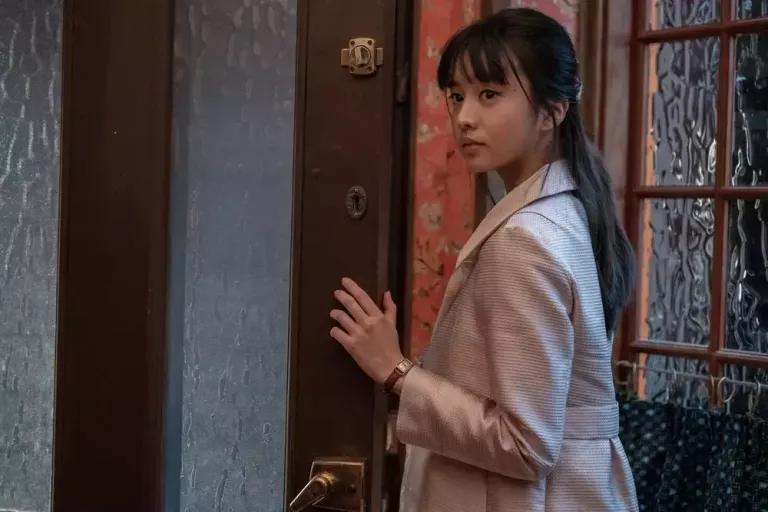
Technically, Touch has beautiful cinematography, a gorgeous color palette, and shots that make us feel close to the protagonists and somehow immerse us in the story. The direction is excellent, the soundtrack is up to par, and the non-linear narration that alternates Kristófer's present (the calls from his worried daughter, the CoVid-19 pandemic, and his impossible search in London) with his past (the sixties, Miko, the restaurant, love) make the film completely absorb you. At no point do you lose interest in continuing to watch it.
En cuanto a lo técnico, Touch tiene una cinematografía preciosa, una paleta de colores muy hermosa y unas tomas que nos provocan cercanía con los protagonistas y que de alguna manera nos sumergen en la historia. La dirección es buenísima, la banda sonora está a la altura y esa narración no lineal que va alternando el presente de Kristófer (las llamadas de su hija preocupada, la pandemia del CoVid-19 y su búsqueda imposible en Londres) con su pasado (los años sesenta, Miko, el restaurante, el amor) hacen que la película te absorba completamente. En ningún momento se pierde el interés de seguir viéndola.
I think one of the reasons why the script is so well written is because it's an adaptation of the novel of the same name by Ólafur Jóhann Ólafsson. Who better than the author himself to adapt his work, in this case, together with the director? I think that is where the narrative force of both stories, both the present and the past, comes from. They leave encounters, moments and phrases that make us reflect on youth, oblivion, memory, personal history in the midst of the great History of the world, the weight of the past that we carry on our backs, even a past that we didn't live, in which we didn't participate and of which we are not responsible, but we are victims. And of course, love. Anyone who has fallen in love or dreamed of doing so will find the encounters between Kristófer and Miko, their conversations, those veiled phrases, the insinuations, the glances stimulating and perhaps - like me - will end up being captivated by the magnetic character of Miko, played by the talented and beautiful Japanese model and singer Kōki. If you love love stories, if you liked Before Sunrise, if you have read and loved Silk by Alessandro Baricco, if you have seen In the Mood for Love a thousand times, if you liked the ending of Love in the Time of Cholera, then Touch is for you: the story of two lost souls who found themselves in each other's arms, and the search of a man who seeks to understand the greatest mystery of his past. Has anyone seen it yet? I'll read you in the comments.
Creo que una de las razones por la cuales el guión está tan bien escrito es porque se trata de una adaptación de la novela homónina del propio Ólafur Jóhann Ólafsson, ¿quién mejor que el propio autor para adaptar su obra, en este caso, conjuntamente con el director? De allí creo yo que se desprende esa fuerza narrativa de ambas historias, tanto la del presente como la del pasado, van dejando encuentros, momentos y frases, que nos hacen reflexionar sobre la juventud, el olvido, la memoria, la historia personal en medio de la gran historia del mundo, el peso del pasado que llevamos a cuestas, incluso de un pasado que no vivimos, en el que no participamos y del que no somos responsables, pero sí víctimas. Y por supuesto, el amor. Cualquier persona que se haya enamorado o que haya soñado con hacerlo encontrará estimulantes los encuentros entre Kristófer y Miko, sus conversaciones, esas frases veladas, las insinuaciones, las miradas y tal vez - como yo - acabará prendido del carácter magnético de Miko, interpretada por la talentosa y bellísima modelo y cantante japonesa Kōki. Si eres amante de las historias de amor, si te gustó Before Sunrise, si has leído y amado Seda de Alessandro Baricco, si has visto mil veces In the Mood for Love, si te gustó el final de El amor en los tiempos del cólera, entonces Touch es para ti: la historia de dos almas perdidas que se encontraron a sí mismas en los brazos del otro, y la búsqueda de un hombre que busca entender el mayor misterio de su pasado, ¿alguno ya la ha visto? Los leo en los comentarios.
Reseñado por @cristiancaicedo
Other posts that may interest you | Otros posts que pueden interesarte:
   |
|---|
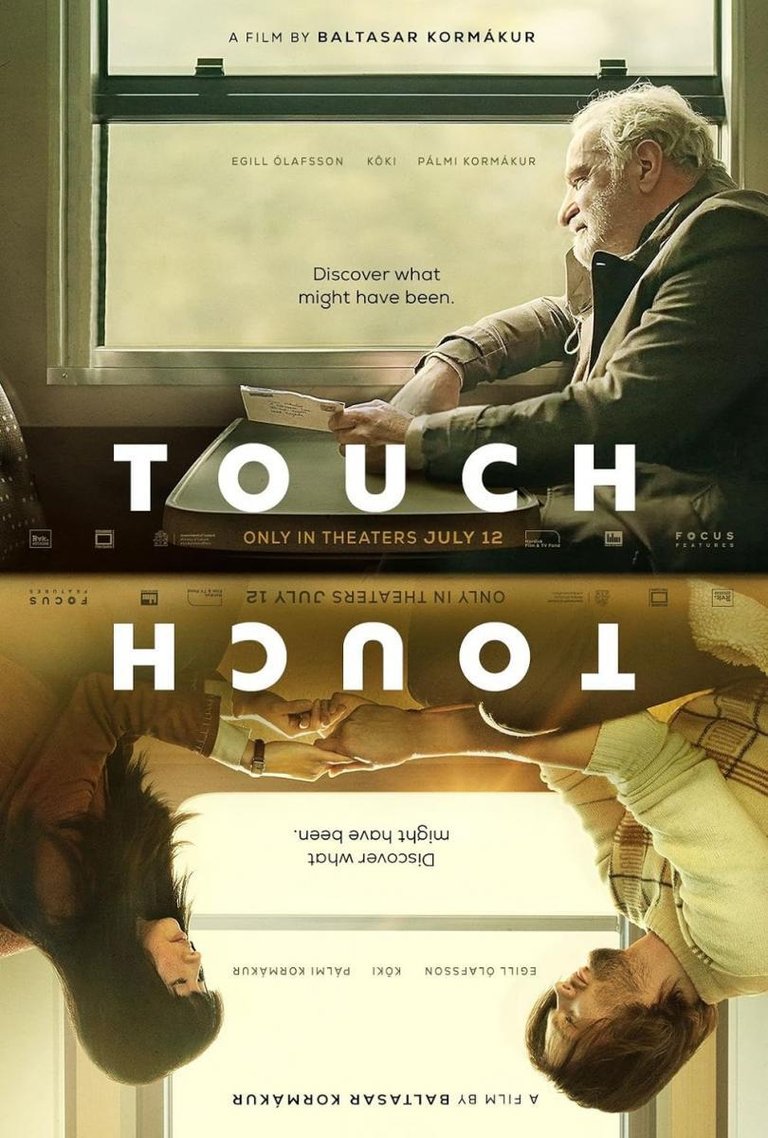
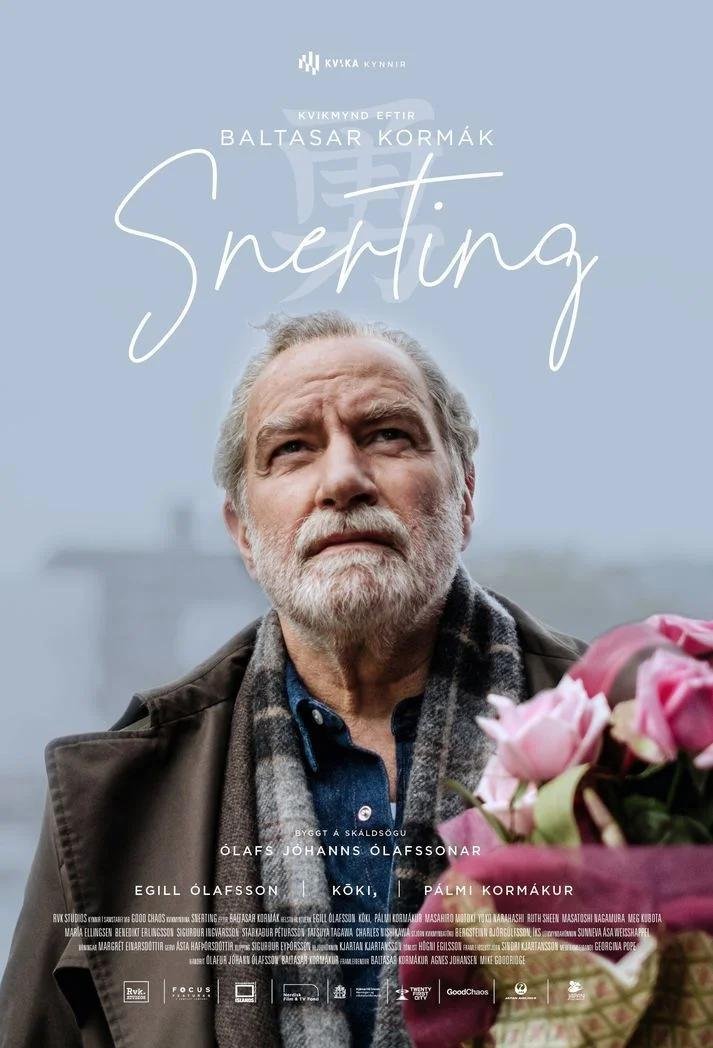
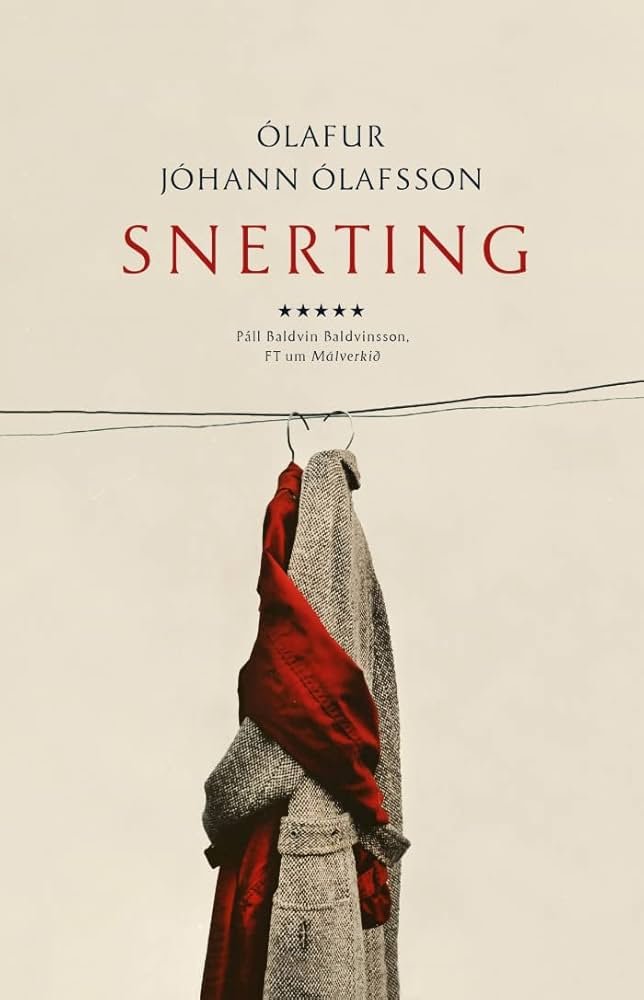

Has sido votado por
PROYECTO ENLACE
'Conectando Ideas y Comunidades'
PROYECTO ENLACE es un proyecto de curación de habla hispana enfocado en recompensar contenido de calidad y apoyar autores en su proceso de crecimiento en HIVE.
Creemos y apostamos por el futuro de esta gran plataforma, y estamos muy emocionados de poder hacerla crecer junto a esta comunidad. Así que te invitamos a publicar en nuestra COMUNIDAD y estar atento a todas las actividades que tenemos preparadas y que estaremos publicando en breve.
¿QUIERES AUTOMATIZAR TUS GANANCIAS DE CURACIÓN? SE PARTE DEL PROYECTO ENLACE APOYANDO A NUESTRO TRAIL EN HIVE.VOTE INGRESA AQUÍ PARA CONOCER LOS DETALLES.
¿QUIERES INVERTIR ENLACE? DESCUBRE COMO HACERLO Y GENERAR INGRESOS DE FORMA SEMANAL MEDIANTE TU DELEGACIÓN DE HP AQUÍ TE EXPLICAMOS COMO.
Te invitamos a participar en nuestro servidor de Discord: https://discord.gg/3S9y7BbWfS
Atentamente
EQUIPO ENLACE 2024
Muchas gracias por el apoyo.
Me llamó mucho la atención esta película por todo lo que comentas, y confieso que soy de esas personas que tiene esa opinión de las personas de países nórdicos. Me parece una buena recomendación para cambiar de opinión sobre ellos.
Espero la puedas disfrutar pronto. Saludos.
The name reminds me of a composer I used to listen to back in the day. I think this is one of those movie that also focuses not only on the story-telling but also its cinematography. Thank you for exposing me to this film. Are they available on Netflix?
It's not on Netflix. I think you can find it on Prime. Thank you for reading my post.
From Venezuela, our witness drives decentralization and the adoption of Web3 technology, creating opportunities for the local community and contributing to the global ecosystem. // Desde Venezuela, nuestro testigo impulsa la descentralización y la adopción de la tecnología Web3, generando oportunidades para la comunidad local y contribuyendo al ecosistema global.
Sigue, contacta y se parte del testigo en: // Follow, contact and be part of the witness in: